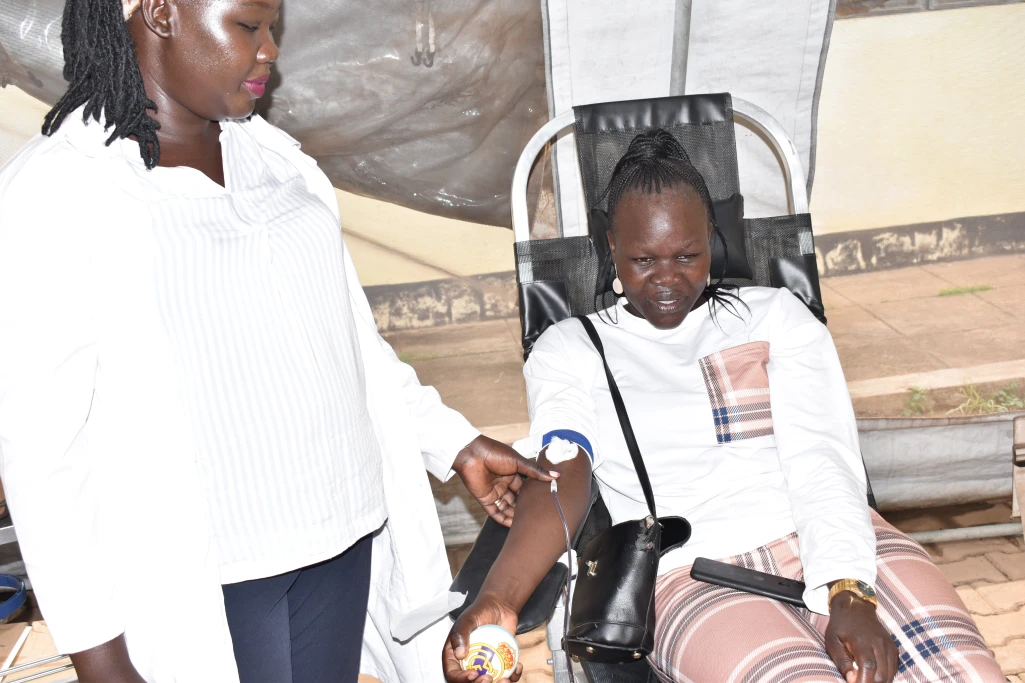
South Sudan National Public Health Laboratory has recorded a low turn-out of voluntary blood donors.
As the world marked Blood Donor Day yesterday, reports indicate only 3% of the population in South Sudan donates blood. This is insufficient for the 30% of the population who will require blood transfusions.
The blood bank reportedly depends on blood donations from foreign nationals compared to South Sudanese. It said before the Covid-19 pandemic, 77% of the donors were foreigners while only 20% were national donors.
“…This is a serious matter. 30% of us will need a blood transfusion at some point in our life but only 3% of us give blood,” said Gregory Wani, acting Director-General in the National Public Health Laboratory and National Blood Transfusion Service.
The National Transfusion Service Data shows that 2/3 of every units which is 60-80% of the blood collected by the national blood transfusion center is transfused to mothers and children.
According to a 2019 report by the World Health Organization (WHO), 1% of South Sudan’s population needs to donate blood to meet annual requirements. This means South Sudan needs to collect an estimated 120,000 units for its population of about 12.9 million people.
“…while the hospitals are battling storage and setting up a real blood bank…our status of blood bank throughout the country is just negligible,” Gregory stated.
He urged the government to boost blood donation through the establishment of Virtual Blood Donors System to reduce child and mother deaths.
Blood is needed by women with complications during pregnancy and childbirth, children with severe anaemia, often resulting from malaria or malnutrition, accident victims and surgical and cancer patients.
The National Minister of Health, Yolanda Awel Deng Juach appealed to the public to make it a habit to donate blood.
“All of us are Ambassadors of the National Blood Transfusion Centers. It is our work to pass the positive words about giving blood and save lives. I urge the public to take it up as a personal call to give blood.”
Donating blood is very simple. Healthy adults can give blood regularly – at least twice a year. Your local blood service can tell you how frequently you can give blood.
A decision to donate your blood can save a life, or even several if your blood is separated into its components – red cells, platelets and plasma – which can be used individually for patients with specific conditions.